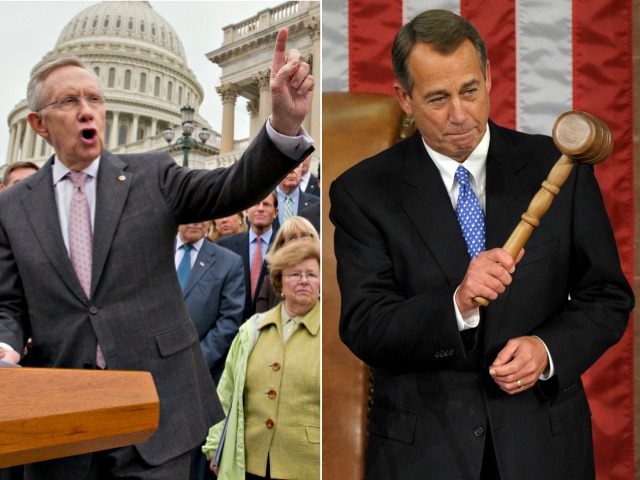Editor’s Note: Mr. Schweizer’s book Extortion: How Politicians Extract Your Money, Buy Votes and Line Their Own Pockets is available in bookstores and at online retailers today from Houghton Mifflin.
We have long assumed that the infestation of special interest money in Washington is at the root of so much that ails our politics. But what if we’ve had it wrong? What if instead of being bribed by wealthy interests, politicians are engaged in a form of legal extortion designed to extract campaign contributions?
Consider this: of the thousands of bills introduced in Congress each year, only roughly 5 percent become law. Why do legislators bother proposing so many bills? What if many of those bills are written not to be passed but to pressure people into forking over cash?
This is exactly what is happening. Politicians have developed a dizzying array of legislative tactics to bring in money.
Take the maneuver known inside the Beltway as the “tollbooth.” Here the speaker of the House or a powerful committee chairperson will create a procedural obstruction or postponement on the eve of an important vote. Campaign contributions are then implicitly solicited. If the tribute offered by those in favor of the bill’s passage is too small (or if the money from opponents is sufficiently high), the bill is delayed and does not proceed down the legislative highway.
House Speaker John A. Boehner appears to be a master of the tollbooth. In 2011, he collected a total of over $200,000 in donations from executives and companies in the days before holding votes on just three bills. He delayed scheduling a vote for months on the widely supported Wireless Tax Fairness Act, and after he finally announced a vote, 37 checks from wireless-industry executives totaling nearly $40,000 rolled in. He also delayed votes on the Access to Capital for Job Creators Act and the Small Company Capital Formation Act, scoring $91,000 from investment banks and private equity firms, $32,450 from bank holding companies and $46,500 from self-described investors — all in the 48 hours between scheduling the vote and the vote’s actually being held on the House floor.
Mr. Schweizer’s op-ed originally appeared at The New York Times. Read it in its entirety here.

COMMENTS
Please let us know if you're having issues with commenting.